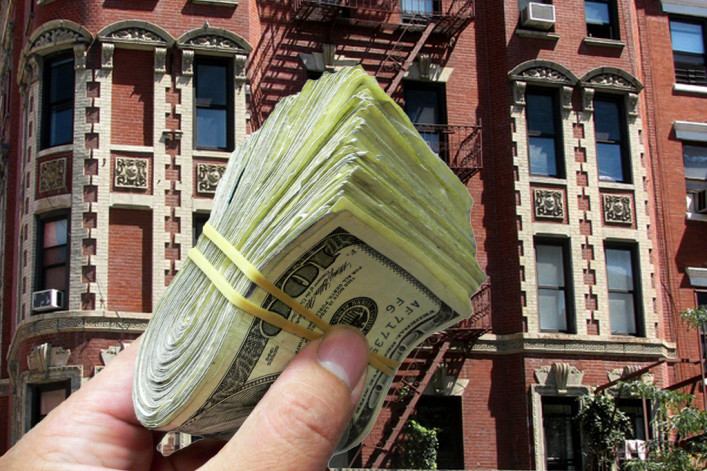Ask An Expert: I'm buying a NYC apartment. How much should I pay in attorneys' fees?

Q: I'm buying an apartment in Manhattan with a budget of $1 million tops. How much should I pay for a real estate attorney? Do the rates differ if I buy a co-op versus a brand new condo? Should it be flat rate or hourly? I've gotten wildly different quotes, ranging from $2,000 to $10,000. One lawyer wants to charge $635 an hour!
I don't want to be taken advantage of. Help!
A. When it comes to attorneys’ fees, like many other things in life, you get what you pay for. A discount lawyer may seem like a good idea initially, but you could pay a lot more in the end if your legal representation doesn’t do a thorough job of reviewing your closing documents.
“It is foolish to save $500 in legal fees if it costs you thousands of dollars in later expenses, problems or taxes,” says real estate attorney Dean Roberts of Norris, McLaughlin & Marcus.
Most law firms charge between $2,000 and $5,000 for a closing, our experts say. For a typical purchase, expect to pay on the lower end of that range; for anything unique or more involved, you'll be paying on the higher end.
What will impact the price
For the fees, you can expect your lawyer to negotiate and review the sale contract (including, typically, the buyer’s rider), and review a raft of documents, including the offering plan and amendments, board minutes, two or three years’ worth of the building’s financial statements, transfer documents (a deed for a condo, shares of stock and a lease for a co-op, plus transfer tax documents for both), title documents, and loan documents, says real estate attorney Steven Wagner of Wagner Berkow.
Your attorney should also communicate with the seller’s attorney and the lender (if the buyer is taking out financing) as well as attend the closing, he adds.
Some wrinkles that could add costs are special terms like a seller staying in the apartment after the closing, a short sale, or a contingency like the board having to approve a unit combination, Wagner says.
“One way to save money is to choose an attorney familiar with the offering plan in the building,” suggests Roberta Axelrod, a real estate broker and asset manager at Time Equities. The building’s managing agent or a broker who has sold there before may be able to offer referrals, she adds.
But don't shop (just) on price
While it goes without saying that an expert in New York City real estate is a must—“not an out-of-towner, or grandma's trust and estates person”—it’s also worthwhile to hire someone “hands-on, technology-savvy, service-oriented, accessible, responsive to questions, and widely experienced in conducting a thorough due diligence,” says real estate broker Gordon Roberts of Warburg Realty.
Some bargain law firms will do a closing for a flat rate as low as $500 or $750, but our experts cautioned against shopping on price alone.
Not only could you run into problems down the road, but for that price, it’s entirely possible a secretary (or even your law firm’s cleaning staff!) is handling the work. It’s also unlikely anyone is closely reviewing the contract or glancing at the offering plan or the board minutes, experts say.
“While there may be an extra charge for this, it is critical to learn as much as you can about the building and community before making such an important investment,” notes co-op and condo attorney Robert Braverman of Braverman Greenspun.
Hourly vs. flat rate
As for whether you should go with a flat rate or an hourly fee, it depends on what kind of closing you’ve got. If it’s “a straightforward purchase with no complexity or nuance, the individual should be able to negotiate either a fixed fee or at least a capped estimate,” Dean Roberts says. For more involved deals, “find an attorney experienced in this field and negotiate a reasonable fee,” he adds.
And remember, some firms will only handle closings on an hourly basis, which can get pricey if complications crop up, Braverman says.
New condo vs. resale
When it comes to fees for buying a new condo or a resale, the only real difference, according to Wagner, is that it can take longer to review the offering plan for the new building. “The attorney has to pay much closer attention to the information contained in the offering plan describing the apartment so that the purchaser knows what he or she is entitled to under the offering plan,” he says.
See all Ask an Expert
Related posts:
A who's who--and who does what--guide to buying a NYC apartment
Buying a new condo? Here's the checklist you've been looking for
Trouble at home? Get your NYC apartment-dweller questions answered by an expert! Send us your questions.


























